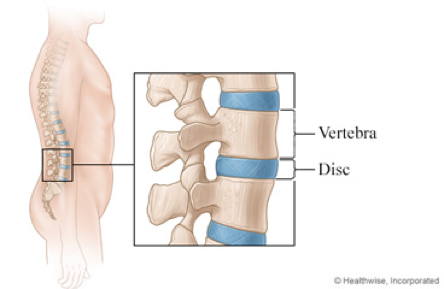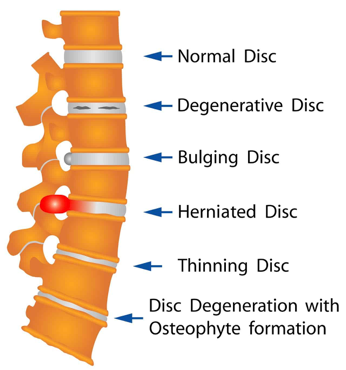Bulging Discs 101
The discs in our spine act as cushions or shock absorbers between vertebrae which can help prevent damage to spinal tissue and bone. These discs allow for slight bending and flexing of the back. These discs have a hard casing and a gel-like interior.

As we age, the discs in our spine naturally begin to deteriorate; therefore, bulging discs are common in older populations. A bulging disc occurs when the hard casing of the disc begins to weaken but doesn’t rupture, and “bulges” outward. A herniated disc may actually begin as a bulging disc whose outer wall is then ruptured by a great amount of pressure.

Bulging discs often result in pain, numbness or weakness, tingling, spasms, difficulty walking, etc. Disc-associated pain can definitely affect one’s quality of life; therefore, it’s important to seek appropriate treatment.
Treatment options include, but are not limited to:
- Maintaining a healthy weight
- Regaining strength through consistent exercise and physical therapy if needed
- Anti-inflammatory medications
- Steroid injections
It’s imperative to work with your doctor to develop a treatment plan that is specific to you and your pain. If you think you have a bulging disc or have already received a diagnosis and would like to schedule an appointment, please call us at: (704)864-5550

